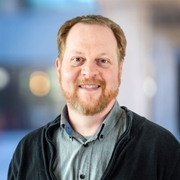- Level Foundation
- Duration 6 hours
- Course by Erasmus University Rotterdam
-
Offered by

About
In a world of information overload, how does one find reliable information? Science is supposed to be the answer to our society's complicated challenges. However, as the Covid-19 pandemic highlighted, not understanding what is fake news, misinformation or what is fact may lead to widespread public mistrust, or turn science into fuel for conspiracy theories or propaganda. Scientific findings are prone to change, making it difficult to effectively communicate them to the public. This fosters broad public skepticism towards major institutions, from the government to media to science. So, how can we communicate science effectively? And how can we rebuild trust in science? As a result, it is critical that we reconsider our science communication practices to recover public trust. This course offers a current overview of science communication. We cover a wide range of topics like fake news, mis- or disinformation, but also how to combat these practices. We explore how major stakeholders (scientists, policymakers, science communicators and citizens) can work together to improve science communication. And we tackle how people and organizations can earn and maintain public trust via effective science communication. We recommend this course to scientists, journalists, policymakers or any learners interested in science communication. More information can be found at www.trescaproject.eu (This project has received funding from the European Union’s Horizon 2020 Research and Innovation Programme under Grant Agreement No 872855.)Modules
Introduction
1
Videos
- Introduction to the Course
The Digital Context of Communication
1
Assignment
- Test Your Knowledge
4
Videos
- The Digital Context of Communication
- The Importance of Trust
- Strengthening Collaborations to Improve Public Trust
- Information Overload & Misinformation
Methodologies of Truth
1
Assignment
- Test Your Knowledge
3
Videos
- Knowledge Production Cycle: Part 1
- Knowledge Production Cycle: Part 2
- Communicating with the Outside World
The Journalist
1
Discussions
- Share Your Thoughts
4
Videos
- What you can expect
- Journalism 101
- The Online Jungle
- Science Journalism and the Community
The Policy Maker
1
Assignment
- Test Your Knowledge
4
Videos
- What you can expect
- Evidence-based Policymaking
- Engaging in Public Communication
- Citizen Engagement & Public Participation
1
Readings
- Workbook
Digital Media Platforms & Misinformation
1
Assignment
- Test Your Knowledge
4
Videos
- What you can expect
- Digital Advertising & the Attention Economy
- Information Operations & Audience Vulnerability
- Tools for Verifying Online Information
1
Readings
- Workbook
The Citizens
1
Discussions
- Share Your Thoughts
4
Videos
- What you can expect
- Perceiving Scientific Information
- Engaging with Scientific Information
- Potential Strategies and Tools to Create Engaging Communication
1
Readings
- Workbook
Conclusion
1
Discussions
- Share Your Thoughts
1
Videos
- Course Conclusion
Auto Summary
In today's era of information overload, distinguishing reliable information from fake news and misinformation is crucial. The "Science Communication: Communicating Trustworthy Information in the Digital World" course on Coursera addresses this challenge by focusing on effective science communication. This personal development course aims to rebuild public trust in science by exploring strategies to combat misinformation and disinformation. Led by experts in the field, the course delves into how scientists, policymakers, science communicators, and citizens can collaborate to improve the dissemination of scientific knowledge. Learners will gain insights into maintaining public trust through transparent and effective communication practices. Designed for scientists, journalists, policymakers, and anyone interested in science communication, this foundational course runs for approximately 360 minutes. Flexible subscription options, including Starter and Professional plans, are available to cater to different learning needs. Join this course to enhance your science communication skills and contribute to fostering a more informed and trusting public. For more details, visit www.trescaproject.eu. This project is funded by the European Union’s Horizon 2020 Research and Innovation Programme.

Jason H. Pridmore
Marina Tulin

